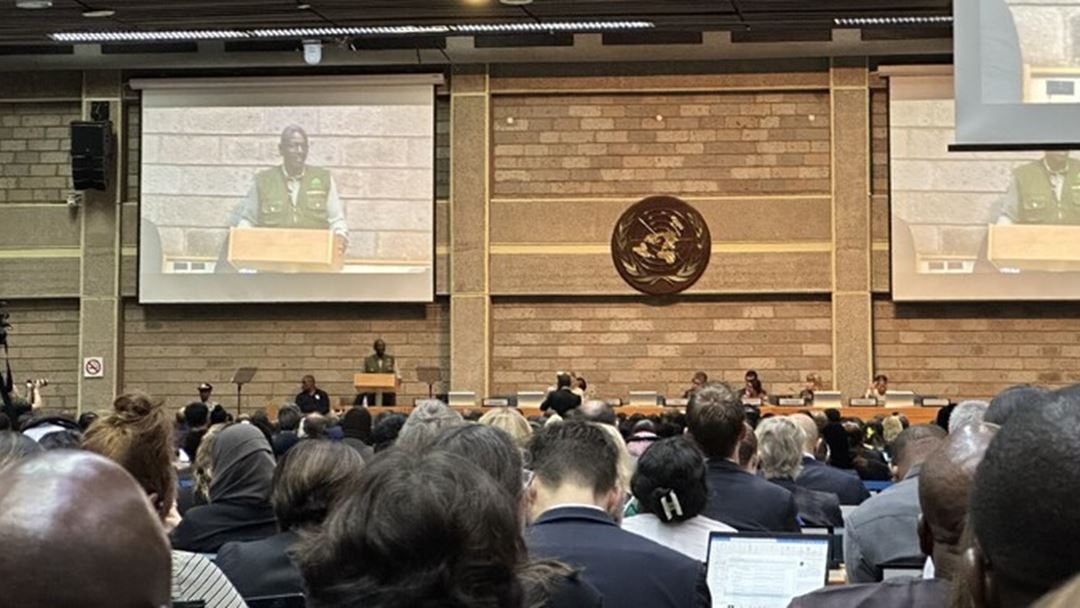Recap of Day 1: The third session of an Intergovernmental Negotiating Committee (INC-3) on a treaty to end plastic pollution
“This is the home of humanity – where we all began.” Ending the high-level plenary on the first morning the speech from His Excellency Dr. William Samoei Ruto, President of the Republic of Kenya

By Emily Cowan
The president noted that we are all from Africa, and it is an honour to host INC-3 and subsequently continue to hold the UNEP headquarters here in the global south.
The day began 15 minutes late; however, it was attended by a high-level speaker – the President of Kenya. This means that security was also on high alert on the first day. The plenary room was buzzing with excitement to finally begin the third session of negotiations on Monday, the 13th of November 2023. It began with a high-level segment with speakers including Inger Anderson, the INC secretariate and chair, as well as the Kenyan president.
The chair then swiftly moved to adopt the organizational matters of the meeting. A summary report of the preparatory meeting that took place on the 11th of November 2023 in the run-up to the negotiations was read out loud.
With less than one hour left of the early morning plenary, it was then time for UN member states, IGOs and NGOs to provide their input to the zero draft.
A powerful statement made by Palau on behalf of the Pacific South Island Developing States started the day of interventions by delegates: “The modern world is addicted to plastic - we must admit there is a problem. […] This is why we must address the full life cycle of plastics. And ensure that even the smallest state can fully engage and meet obligations, including through the provision of adequate means of implementation. This requires nothing less than a revolution in how we produce and consume.” There were numerous head nods in agreeance, during this analogy.
A key point mentioned by numerous like-minded group statements in the morning plenary was the need to create synergies and build off existing multi-lateral environmental agreements (MEAs) such as the Basel, Rotterdam, or Stockholm Convention as well, and not reinvent the wheel.
The Coordinating Body on the Seas of East Asia (COBSEA) emphasized this by stating that “We recommend building on Lessons learned from other MEAs and we encourage discussion of effective use of other measures.”
The Group of Latin America and the Caribbean (GRULAC) called then for ‘Synergies with existing MEAs and schemes on technology transfer to support developing countries with implementation of future instruments.'
These efforts to build on past MEAs are echoed in a new publication that includes our research scientist Emily Cowan entitled A little less conversation: How existing governance can strengthen the new global treaty.
Contrary to the nodding in agreement in the morning session, the afternoon plenary on the first day was split down the middle with many countries now part of the 'like-minded group' including Russia, Saudi Arabia, United Arab Emirates, Iran and Qatar arguing that the zero draft text did not take their viewpoints into account and that they would not be able to negotiate without more transparency on how to incorporate all countries' views, indicating that there could be some tough negotiation sessions ahead of us this week.
By the end of the day, however, substantial discussions in the Contact Groups were not able to proceed and this morning will start with a continuation of the plenary and hearing at least 17 member states' views of the zero draft text before being able to move onto real substantive negotiations. We look forward to a fruitful second day of negotiations.
